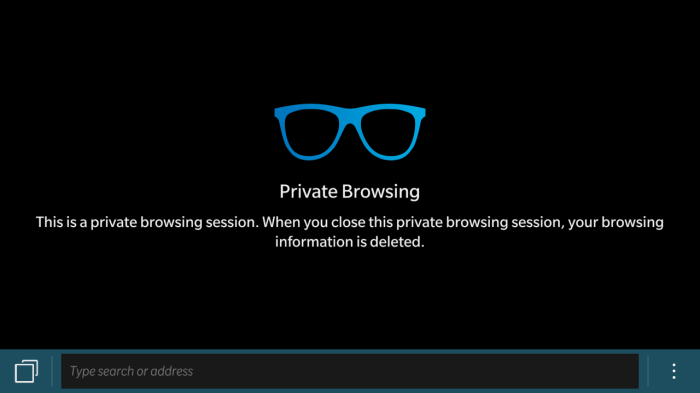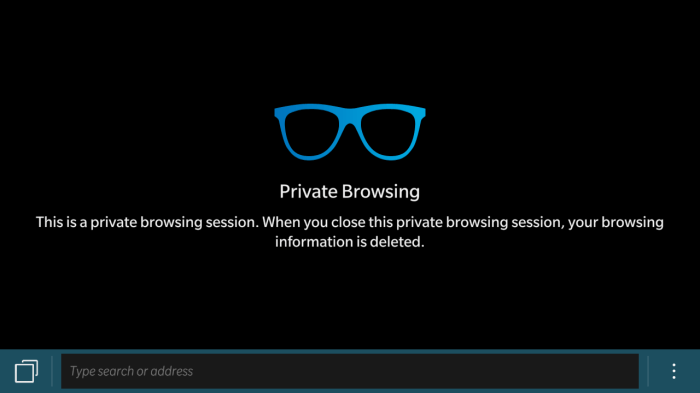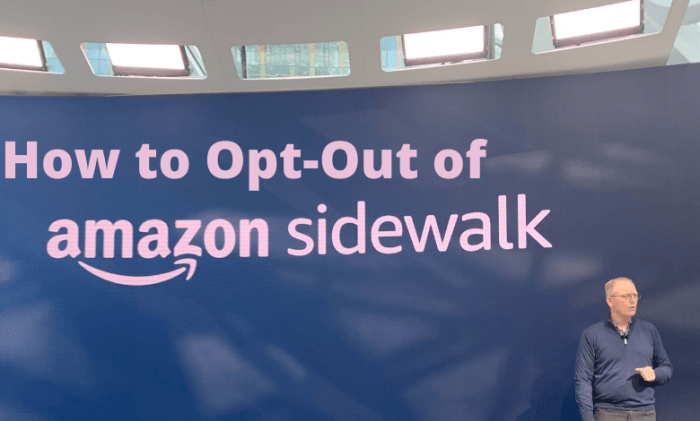Keep Your Private Browsing Secret With This One Smart Safari Move
Keep your Private Browsing secret with this one smart Safari move. Private browsing is supposed to keep your online activity hidden, but it’s not always as secure as you might think. While it can help prevent your browsing history and cookies from being saved, it doesn’t completely erase your digital footprint.
There are still ways for websites and trackers to identify you, even in private browsing mode.
That’s where this one smart Safari move comes in. By enabling a specific setting in Safari, you can significantly enhance your privacy and make it much harder for anyone to track your online activity. This setting blocks websites from seeing your IP address, making it more difficult for them to identify your location and build a profile of your browsing habits.
Private Browsing: A Deeper Dive
Private browsing is a feature offered by most web browsers that allows you to browse the internet without saving your browsing history, cookies, or other data. This means that your activity is not recorded on your device, making it ideal for situations where you want to maintain your privacy, such as when using a public computer or accessing sensitive information.
While private browsing offers a sense of privacy, it’s important to understand that it’s not a foolproof solution for safeguarding your online activities.
Privacy Concerns with Private Browsing
It’s crucial to remember that while private browsing hides your activity from your device, it doesn’t necessarily make you invisible online. Here are some of the potential risks associated with private browsing:
- Your internet service provider (ISP) can still see your browsing activity.Your ISP can track the websites you visit, even in private browsing mode. This is because your traffic is still routed through their servers.
- Websites can still track your activity using cookies and other tracking mechanisms.While private browsing blocks cookies from being stored on your device, websites can still use other methods to track your activity, such as by using unique identifiers or by embedding tracking scripts in their websites.
- Your employer or school network can still monitor your browsing activity.If you are using a computer provided by your employer or school, they may have access to your browsing history, even in private browsing mode.
- You may still be vulnerable to phishing attacks and malware.Private browsing does not protect you from malicious websites or software. It’s essential to be cautious about the websites you visit and the links you click.
It’s essential to understand that private browsing is not a replacement for comprehensive privacy protection. While it offers a degree of anonymity, it’s crucial to take additional measures to safeguard your online privacy, even when using private browsing.
Safari’s Private Browsing Mode
Safari’s Private Browsing Mode, also known as “Private Browsing,” is a feature that allows users to browse the internet without saving their browsing history, cookies, or other website data. This mode helps protect user privacy by preventing others from accessing their browsing activity.
How Safari’s Private Browsing Mode Handles Data
Safari’s Private Browsing Mode operates differently from normal browsing, ensuring that sensitive data is not stored on your device. Here’s how it handles specific data types:
Cookies
Safari’s Private Browsing Mode does not store cookies from websites visited while in this mode. Cookies are small text files that websites use to store information about your browsing activity, such as login details or shopping cart items. When you close the private browsing window, all cookies associated with that session are deleted.
Browsing History
Safari’s Private Browsing Mode does not save your browsing history. This means that websites you visit in this mode will not appear in your Safari history list.
Website Data
Safari’s Private Browsing Mode also prevents websites from storing data on your device, such as login credentials, autofill information, or browsing preferences. This ensures that your personal information is not accessible to others who may use your device.
Comparing Safari’s Private Browsing Mode with Other Browsers
Safari’s Private Browsing Mode shares similarities with private browsing features offered by other browsers, such as Chrome’s “Incognito Mode” and Firefox’s “Private Browsing.” However, there are some subtle differences:
Cookie Handling
While most browsers, including Chrome and Firefox, handle cookies similarly in their private browsing modes, Safari offers an additional layer of security by blocking third-party cookies by default. Third-party cookies are cookies set by websites other than the one you are currently visiting.
These cookies can be used for tracking your browsing activity across different websites, which can raise privacy concerns. Safari’s default blocking of third-party cookies in Private Browsing Mode helps protect user privacy by limiting tracking activities.
Data Storage
All major browsers, including Safari, Chrome, and Firefox, generally aim to prevent the storage of browsing history, cookies, and website data in their respective private browsing modes. However, there may be subtle differences in how they handle specific types of data, such as autofill information or saved passwords.
It’s always recommended to consult the documentation for each browser to understand the specific functionalities and limitations of their private browsing modes.
Okay, so you’re trying to keep your browsing history on the DL, right? We’ve all been there. But did you know you can create a whole new persona in Vision Pro, which is kinda like having a digital twin, How to create your Persona in Vision Pro , and then switch between your real self and your “browsing-in-cognito” self?
It’s like having two different identities, so your real self stays clean, and your private browsing self can do whatever it wants. Just remember to switch back when you’re done, or you might end up doing some embarrassing things in front of your friends.
The Smart Safari Move
Private browsing is great for keeping your online activity private, but even with it enabled, Safari might still collect some data. Thankfully, there’s a simple setting that can help you tighten up your privacy even further. This setting, called “Prevent Cross-Site Tracking,” is a powerful tool that can significantly enhance your privacy while browsing in private mode.
Preventing Cross-Site Tracking, Keep your Private Browsing secret with this one smart Safari move
This setting prevents websites from tracking your activity across different websites. When you visit a website, it might try to place a cookie on your computer. Cookies can be used to track your browsing history, preferences, and even your location.
By enabling “Prevent Cross-Site Tracking,” Safari blocks these cookies, making it harder for websites to follow you around the web.Here’s how to enable this setting in Safari:
- Open Safari and click on the “Safari” menu in the top menu bar.
- Select “Preferences” from the dropdown menu.
- Click on the “Privacy” tab.
- Check the box next to “Prevent cross-site tracking.”
“Prevent Cross-Site Tracking” is a key setting to enhance privacy in private browsing mode.
This setting is especially important in private browsing because it helps ensure that your browsing history and other data are not being tracked across websites, even while you’re in private mode.
So, you’re trying to keep your browsing history private, right? No worries, Safari has your back. But if you’re looking to spice up your photos, you should check out 7 amazing iPad apps to make your photos pop.
Once you’ve got your pics looking fire, you can be sure that your private browsing session is locked down tight, thanks to Safari’s awesome features.
Benefits of the Smart Safari Move: Keep Your Private Browsing Secret With This One Smart Safari Move
Enabling the “Prevent Cross-Site Tracking” setting in Safari is a powerful move for enhancing your online privacy. This setting, along with other privacy-focused features, helps safeguard your browsing data and protects you from unwanted tracking.
Preventing Cross-Site Tracking, Keep your Private Browsing secret with this one smart Safari move
This setting plays a crucial role in protecting your privacy by preventing websites from tracking your activity across different sites. It does this by blocking third-party cookies, which are small pieces of data that websites use to track your browsing behavior.
These cookies can be used to create a detailed profile of your interests and online activities, which can then be used for targeted advertising or other purposes.
Okay, so you’re all about keeping your browsing history under wraps, right? That’s why you use Private Browsing, but even then, your Mac might be logging some of your activity. Don’t worry, there’s a super easy fix for that.
Just check out this article on How to Saving Energy With Your Mac , and you’ll find a quick tip to keep your Private Browsing truly private. Once you’ve got that covered, you can really focus on maximizing your Mac’s battery life, too!
By preventing cross-site tracking, you limit the ability of websites to gather information about your online behavior, thus safeguarding your privacy.
Additional Privacy Tips for Safari
Beyond the smart Safari move, there are several additional steps you can take to enhance your privacy while browsing the web. These tips go beyond basic settings and delve into proactive measures to protect your data and online activities.
Managing Cookies and Website Data
Cookies are small text files that websites store on your device to remember your preferences and browsing activity. While some cookies are essential for website functionality, others can track your browsing habits and collect personal data. Safari allows you to manage cookies and website data in several ways:
- Block All Cookies:This setting prevents all cookies from being stored on your device, but it can affect website functionality.
- Block Third-Party Cookies:Third-party cookies are set by domains other than the one you’re visiting. Blocking these cookies can significantly reduce tracking.
- Clear Cookies and Data:Regularly clear your cookies and website data to remove any stored information. You can do this by going to Safari’s settings and selecting “Clear History and Website Data.”
Using Strong Passwords and Two-Factor Authentication
Strong passwords are essential for protecting your online accounts. A strong password is at least 12 characters long and includes a mix of uppercase and lowercase letters, numbers, and symbols. Two-factor authentication (2FA) adds an extra layer of security to your accounts.
When you enable 2FA, you’ll be asked to enter a code from your phone or email in addition to your password when logging in.
Using strong passwords and 2FA can significantly reduce the risk of unauthorized access to your accounts.
Conclusion
In today’s digital landscape, protecting your online privacy is paramount. By understanding the nuances of Safari’s Private Browsing mode and implementing the smart Safari move, you can significantly enhance your privacy safeguards. Remember, privacy is not a passive pursuit; it requires proactive measures and a commitment to safeguarding your personal information.
Additional Resources and Tools
While Safari’s Private Browsing mode and the smart Safari move provide a solid foundation for privacy protection, there are numerous other resources and tools available to further enhance your online security. Consider exploring:
- Privacy-focused browsers:Browsers like Brave, Firefox, and Tor prioritize privacy and security features, offering enhanced protection against tracking and data collection.
- Privacy extensions:Browser extensions like Privacy Badger and uBlock Origin can block trackers, ads, and other unwanted content, further reducing your digital footprint.
- VPN services:Virtual Private Networks (VPNs) encrypt your internet traffic and mask your IP address, providing an additional layer of privacy and security, especially when using public Wi-Fi networks.
- Password managers:Tools like LastPass and 1Password generate and store strong, unique passwords for each of your online accounts, reducing the risk of credential compromise.
Final Thoughts
By taking advantage of this simple but effective Safari setting, you can significantly increase your online privacy and keep your private browsing sessions truly private. Remember, online privacy is an ongoing journey, not a one-time fix. Be mindful of the websites you visit, the information you share, and the privacy settings on your devices.
Stay informed about the latest privacy threats and take steps to protect yourself.
Answers to Common Questions
How does private browsing mode work?
Private browsing mode prevents your browser from saving your browsing history, cookies, and website data. However, it doesn’t completely erase your digital footprint. Websites can still track your activity using other methods, like your IP address.
Is private browsing mode truly anonymous?
No, private browsing mode is not completely anonymous. While it hides your browsing history and cookies from your browser, it doesn’t prevent websites and trackers from seeing your IP address or other identifying information.
What other privacy tips should I follow when using Safari?
In addition to enabling the smart Safari move, consider using strong passwords, enabling two-factor authentication, and regularly reviewing and managing your cookies and website data in Safari’s settings.









